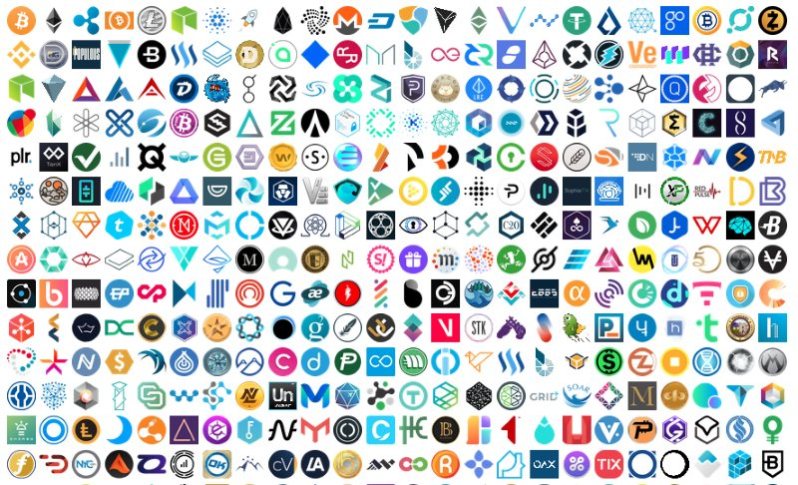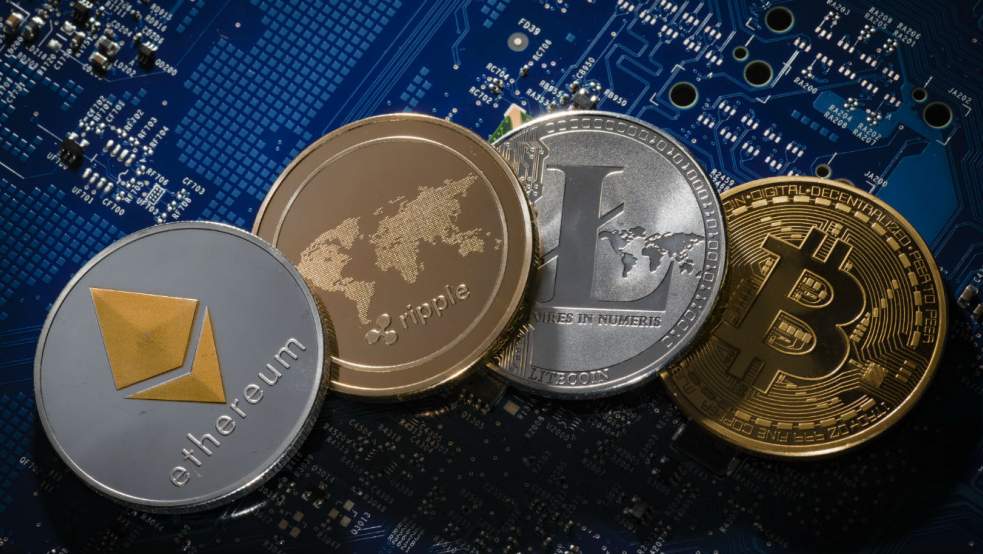Cryptocurrencies are numerous and versatile and can be utilized as entirely private bank accounts and payment cards for almost any occasion. They offer a multitude of ways to earn a form of interest with little or no effort and help users protect sensitive data and holdings on the go 24/7.
It is obvious that the cryptocurrency industry has grown by leaps and bounds in the past 10 years since Bitcoin was born. Fintech is transforming the financial industry and more and more people are getting onboard. Shopping in-store and online is going fully digital but raising cybersecurity fears, which can be drastically reduced with a broader acceptance of cryptocurrencies as a means of payment.
Crypto as Money
Nowadays, almost anything can be paid directly with cryptocurrencies: homes, condos, boats, cars, clothing, electronics, health and pet products, food, wine, accessories, plane tickets, vacations, tools, musical instruments, as well as dating services, professional services, internet services, and, of course crypto gear.
Without pointing out the obvious, let’s look at the most interesting things digital currencies can buy you:
- Enjoy a Thai or Indian restaurant in Montreal or have Dutch pancakes in Aruba
- Buy vintage furniture in Massachusetts or rent an office in Miami
- See the Cerro Negro volcano in Nicaragua or charter a yacht in South Florida
- Buy a Benz or a Beamer in California or a Rolex in Europe
Mobility
Mobile payment is the new trend. Being able to use a smartphone to pay for something instead of a credit card is so much more convenient.
From Paypal and Apple Pay to Mastercard’s Paypass and Visa’s Paywave with near-field communication (NFC) technology and modern POS terminals, payments have never been easier. The same privacy and security issues arise as with the rest of traditional and fiat-based financial transactions. Too much data in one place.
All currently available mobile fiat payment processors store credit card information which include all of our financial information and more. Not to mention that all that data is online and on our mobile devices everywhere we go.
Cryptocurrencies are a safer digital cash option and are ideal for mobile payments by default due to their virtual, decentralized nature.
A Growing Market
Bitpay, one of the most successful crypto payment gateways, is processing $1 billion worth of transactions annually at a rate of a quarter million transactions per month. Coinpayments already serves millions of vendors in 200 countries and has just integrated with Bittorrent to give its 100 million users the option to pay with BTC and altcoins. Coingate serves 50,000 merchants and has processed hundreds of thousands of cryptocurrency payments, and Utrust just partnered with Payrexx and its 10,000 European merchants.
More integrations and partnerships between cryptocurrency payment processors and fiat payment processors are in the works and the market is expected to grow by 50% in the next two years.
In particular, Foton announced plans to attract 100 million users by 2020 and offer competitive features including its own stablecoin, fiat pairs, atomic swaps, a loan and escrow service, and a payment card with loyalty rewards and cash back.
So there is no doubt: millions of merchants all over the world accept cryptocurrencies, as do tens of thousands of websites.
Commercial Use
It has been estimated that some 20 million people worldwide own cryptocurrency. Most others have heard of bitcoin and many plan on adding it to their portfolio.
Square, a credit card payment processor serving merchants, employers and mobile payment users, is gradually out-competing Paypal while also increasing its profits through BTC sales. The majority of Square’s merchant customers have expressed interest in accepting bitcoin core and a 2017 Cambridge Centre for Alternative Finance study confirmed that 40% of consumers would, indeed, like to be able to make purchases with BTC.
Countries with weaker than average fiat currencies tend to favour the use of cryptos.
Turkey, Venezuela, Brazil, Australia and South Africa appear to have large numbers of cryptocurrency users. In fact, a whopping 80 percent of Australians would like to use cryptocurrencies for daily purchases.
Merchants in Eastern Europe and small western European towns seem more open toward adding bitcoin as a method of payment. Even before the 2017 cryptocurrency bull market, more than 10% of Eastern Europeans reported using cryptocurrency in place of fiat for everyday purchases.
Fees
There was a time when cash was king and financial institutions gave generous incentives to people who chose to put their hard-earned cash into institutional coffers.
Today, bank accounts, debit and credit cards, have fees associated with them — money that goes down the drain and provides no benefit.
There are debit and credit card fees, ATM fees, merchant fees, checking account fees, overdraft fees, paper fees, check fees, transfer fees, change fees, charge-back fees, foreign transaction fees, minimum balance fees, inactivity fees, false decline fees, et cetera, et cetera.
In comparison, popular cryptocurrency payment gateways like Bitpay and Coinpayments charge between 0.5% and 1% per transaction.
In most cases, a cryptocurrency account in the form of a digital wallet is entirely free and unless one chooses to invest in cryptocurrency hardware wallets or prepaid cards, other than the transaction fee, using cryptocurrency as money costs absolutely nothing.
International Use
Cryptocurrencies are a borderless means of exchange allowing for instant and cost-effective transactions across the world.
There is no waiting, no international fees and no limitations as to who can or cannot send funds to whom or when and where those funds can be accessed.
All that is needed is an internet-enabled device like a smartphone and someone without access to a banking institution is given an alternative solution with which they can pay bills, earn income, safe-keep their funds, make purchases and conduct business.
Using cryptocurrencies while travelling adds an extra layer of security and can be used as a remote source of emergency funds that can be accessed without an ID, a bank account, credit cards, a wire transfer or even a personal computer device.
No Charge Backs
Unfortunately, there are customers who make a purchase, receive the items they ordered and even use them only to cancel their payment. They can do this because fiat payments are not instant.
With cryptocurrencies, things are quite different.
Once a transaction has occurred, there is no turning back.
Funds ‘travel’ from one wallet to another, the transaction is recorded and it cannot be reversed. This is not to say that a customer cannot return an item and request a refund by communicating directly with the vendor. Of course, they can.
What they cannot do is place an order, pay for it, receive it and then get the sum they paid back on their account because of money back policies overseen by online payment processors and credit card companies.
Charge backs are meant to prevent fraud and yet they often accomplish the very opposite. In this instance, cryptocurrency works the same way as cash. After you’ve taken the item you paid for with cash, you can’t go back to the store with a damaged or used item, never mind empty-handed, and demand your money back.
E-commerce
Accepting cryptocurrency online has never been easier. Shopify and Etsy merchants can select to accept BTC, BCH, and altcoins. Woocommerce and Easy Digital Downloads vendors can use WordPress plugins like Mycryptocheckout for the purpose.
Shapeshift gives customers the choice to pay with dozens of cryptocurrencies. Shapeshift is integrated with cryptocurrency payment processors like Bitpay and Coingate, and cryptocurrency wallets like Coinomi and Keepkey.
Moreover, there is Purse.io, an online platform where users can buy items from Amazon with cryptocurrency and it is also integrated with Shapeshift, as are Magento and Openbazaar. Setting up cryptocurrency payments is super simple and quick and merchant transaction fees are 60-70%lower compared to fiat transaction fees.
Sensitive Data
Banks and credit institutions, as well as retailers and service providers, obtain and retain too much of their customers’ personal and financial information.
Details including our name, address, employers, social security number, net worth, assets, investments, account balances, credit score, credit line, and transaction history, along with everything we do and buy, who we associate with, when, where, etc. comprise our personal, professional and financial data sets. With traditional financial institutions and traditional fiat currency, we can no longer preserve our privacy.
Cryptocurrency transactions provide an alternative by limiting the amount of transaction data to mere numbers also known as cryptocurrency wallet addresses and transaction IDs confirming that a wallet-to-wallet transaction took place.
A cryptocurrency payment processor acting as a third party will typically require your name (and shipping address for the delivery of physical goods), but the rest of your information will remain private as long as you don’t connect your bank or credit card account and transact solely in BTC and altcoins.
Source news.bitcoin.com















